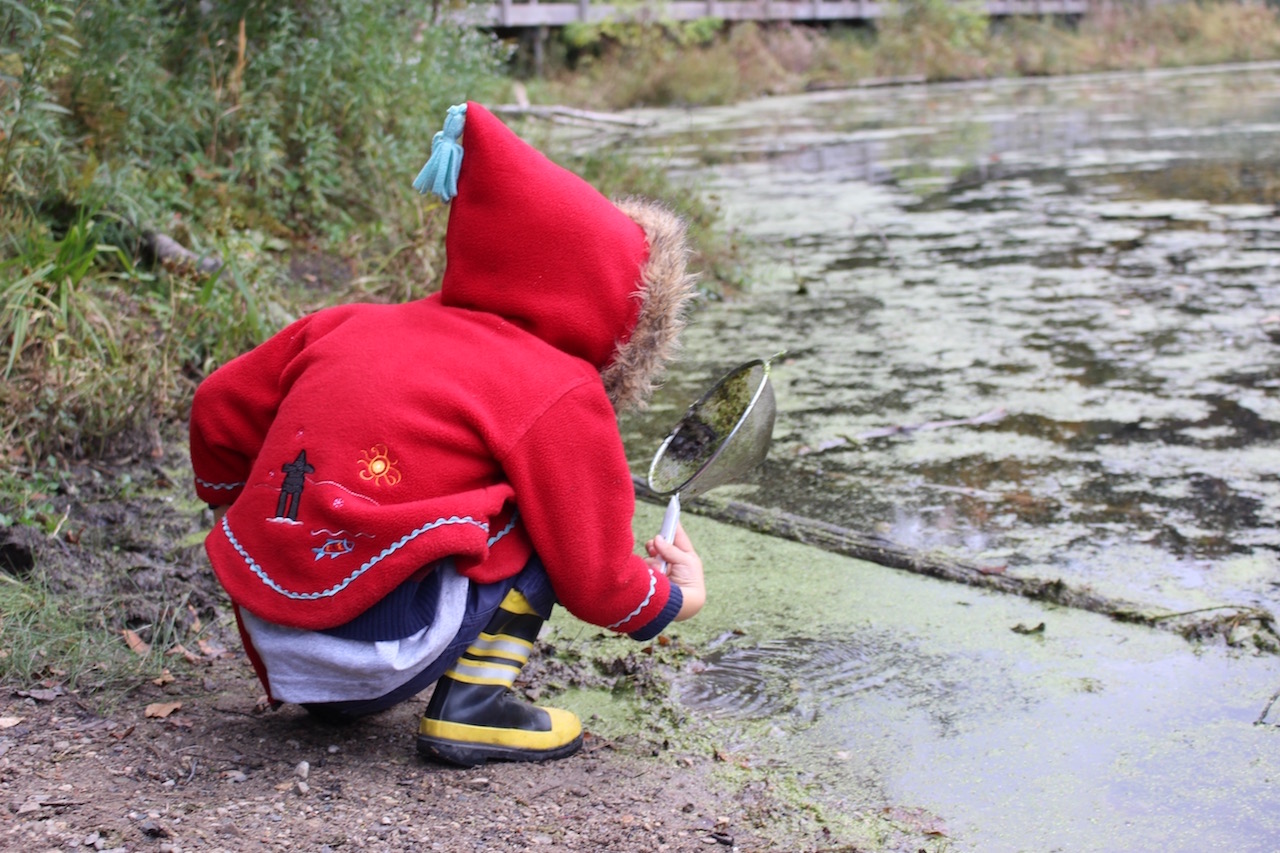
by Petra Eperjesi, Manager of National Programs, with Rebecca Seiling and Josh Shea of the Kitchener Forest School
The mission of the Child and Nature Alliance of Canada is to support ALL Canadian children, youth, and their families, to forge deep, meaningful relationships with the natural world. One of the ways we do that is through advancing the Forest and Nature School (FNS) movement. We run our own – the Ottawa Forest and Nature School – where we work with the Ottawa Carleton District School Board and local families. Our hope is that people will come to the Ottawa FNS, see what’s unfolding there, and get excited about what is possible when we take learning outside on a regular, repeated basis, and when we open up the freedom for children lead to that learning through play.
Perhaps our most frequently asked question is, “How do I start a FNS program?” The answer is – and should be! – different for everyone, based on the age of the learners you hope to work with, their families, your setting, your climate, your partner organizations and other stakeholders, etc. (!) In addition to the Ottawa FNS, we also run a year-long FNS Practitioners certificate course through Forest School Canada, dedicated to answering that question for those interested in either starting their own FNS program, or in incorporating elements of the philosophy into their existing professional practice with children.
But, in the hopes of helping to answer that question – “How do I start a FNS program?”, we are starting a series of blog posts profiling various FNS programs across the country, where they are, what their programs look like, how they got started, and some of their challenges and triumphs along the way. Our first profile will be of the Kitchener Forest School, run by Rebecca Seiling of Nature Connect, in partnership with the City of Kitchener, whose point person on the program is Natural Areas Coordinator Josh Shea.
So, without further ado, our conversation with Rebecca and Josh:
Rebecca and Josh, what is your program called and where is it located?
Our Forest School programs operate under Kitchener Forest School, and the umbrella organization is called Nature Connect. All of our programs are run out of City of Kitchener Parks, mainly at the Huron Natural Area.
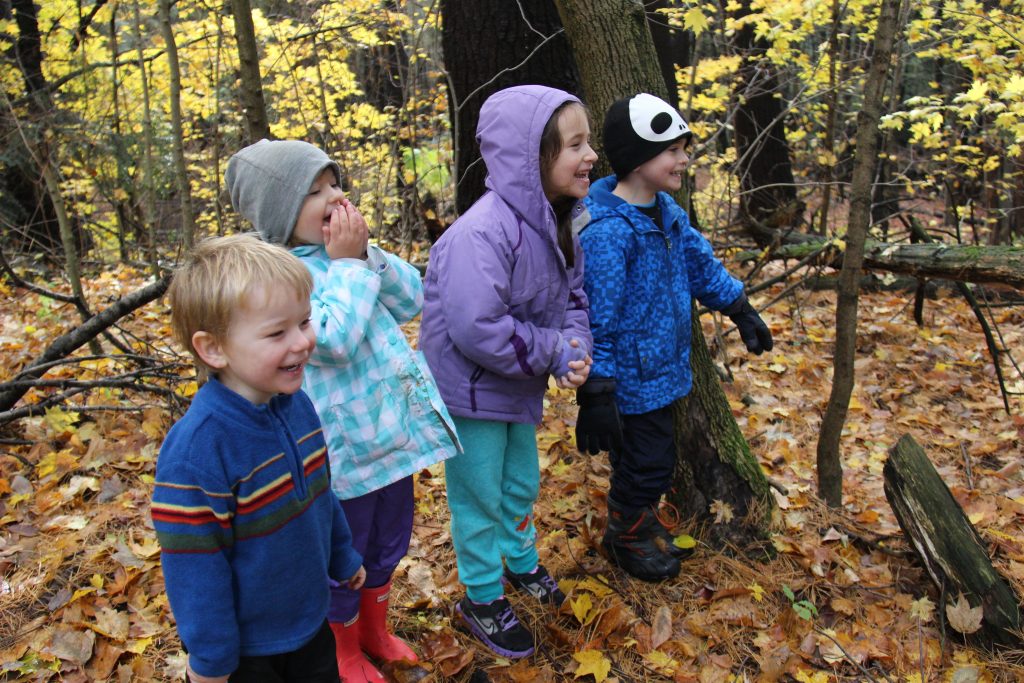
Can you describe your programs?
Over the past 3 years, we have offered:
- Forest School programs for 3-9 year olds that run for 2.5 hours for a 10 week block in fall and spring. This winter, we will offer a 6 week block of programs.
- After School programs for 6-12 year olds, sometimes with a focus like art, drama, or naturalist science.
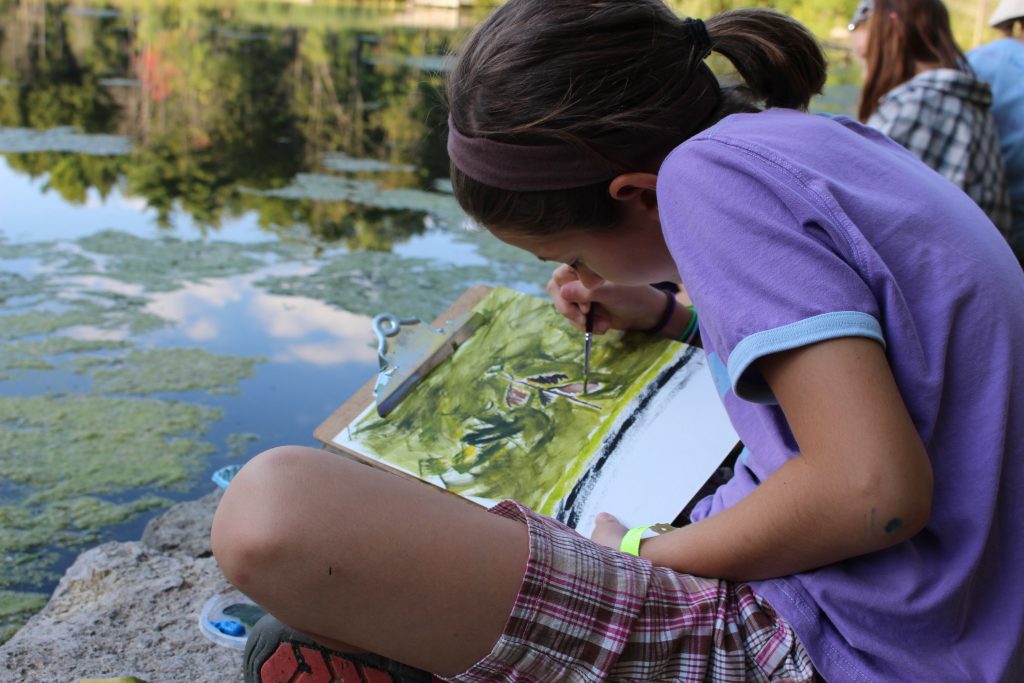
- Tales and Trails, which is a free weekly drop-in program for parents/caregivers and children 5 and under.
- Kindergarten class trips – some in a free 2 hour program with bussing paid for by Kitchener Utilities, and some in a more extended program to promote nearby nature play/learning in the Waterloo Region Public and Catholic School Boards.
- Free, drop-in, seasonal events for the whole family on weekends through Kitchener Natural Areas Program (KNAP).
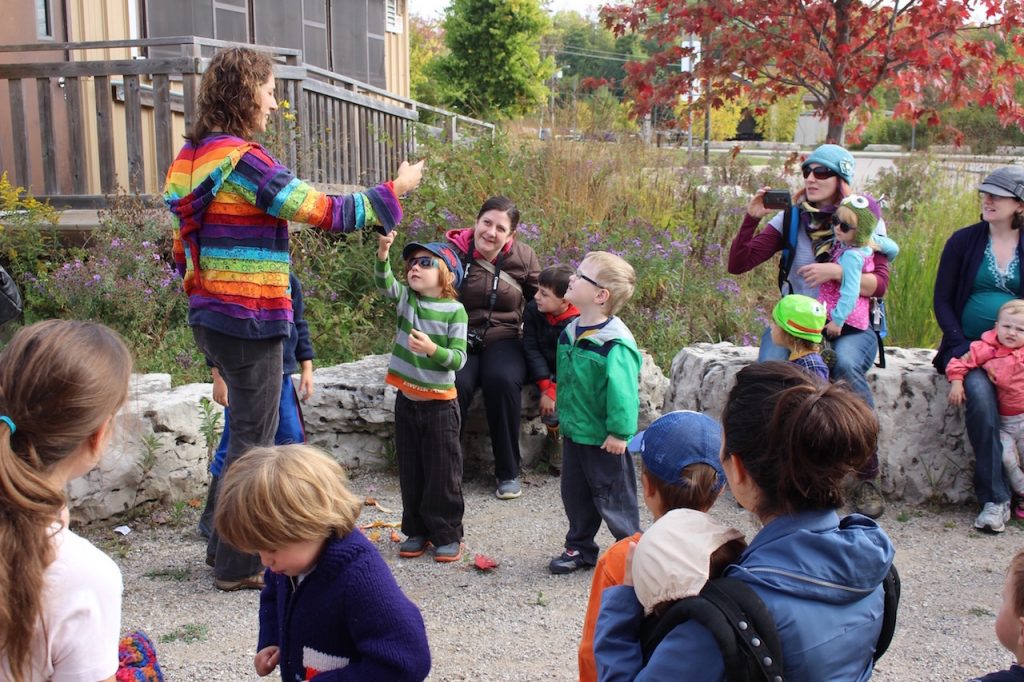
Rebecca, how did you get started/land where you are?
When I was taking the Forest School Practitioner’s Course through Forest School Canada in 2014, I needed to have a practicum placement. I saw that the City of Kitchener was planning to build a natural playscape at the Huron Natural Area, so I contacted Josh to see whether Forest School programming could fit with that park. We got together to chat, and the rest is history!
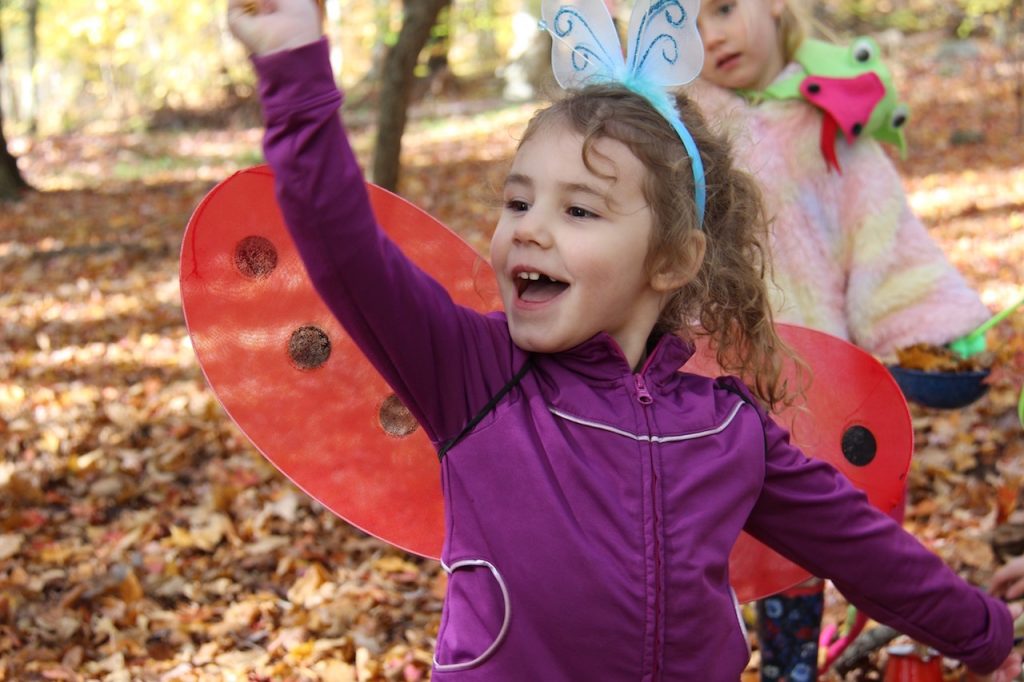
For the past 3 years, Nature Connect has partnered with the City of Kitchener to deliver these programs. The partnership and programs have grown steadily over the years, in terms of numbers of participants, staff, and City of Kitchener funding. I feel very grateful to be working with a city that is so forward looking in terms of getting children outdoors to learn the local landscapes.
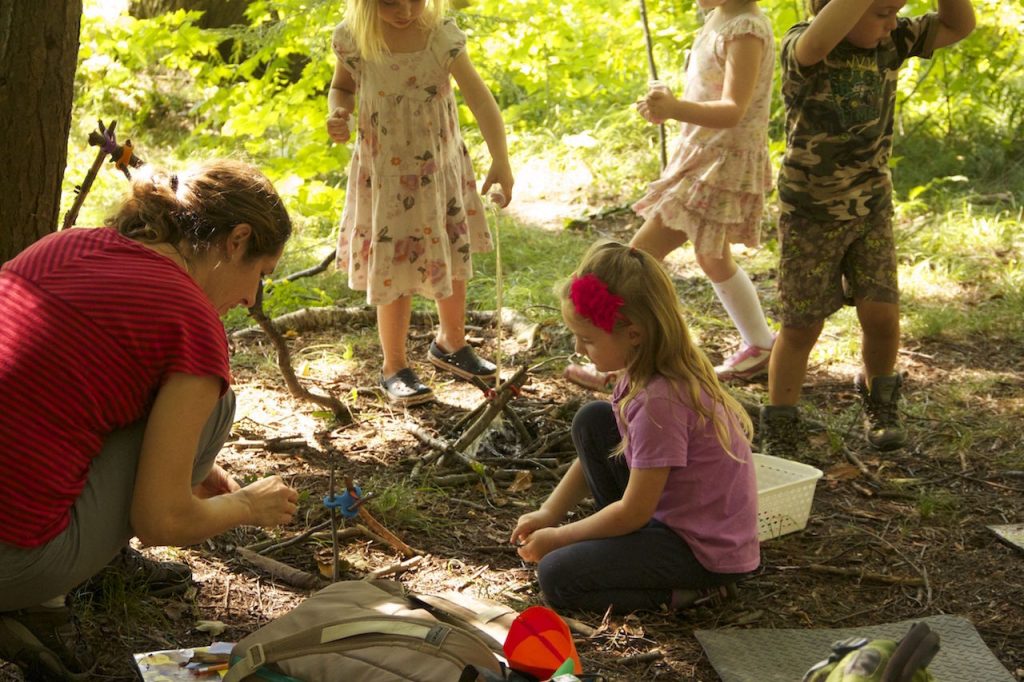
What have been some of the trickiest challenges you’ve faced and how did you move through them?
- No fires or sharp tools. At first, it seemed disappointing that we couldn’t make fires because of City bylaws. It also seemed tricky to incorporate sharp tools. But, it turns out that there is still SO MUCH that we can do without focusing on tools and fire! We have used some simple tools like files and hand drills, but we definitely have no shortage of questions to follow and things to learn about the flora and fauna around us. The children keep us on our toes, pushing us to dig deeper into learning more about the ecological landscape.
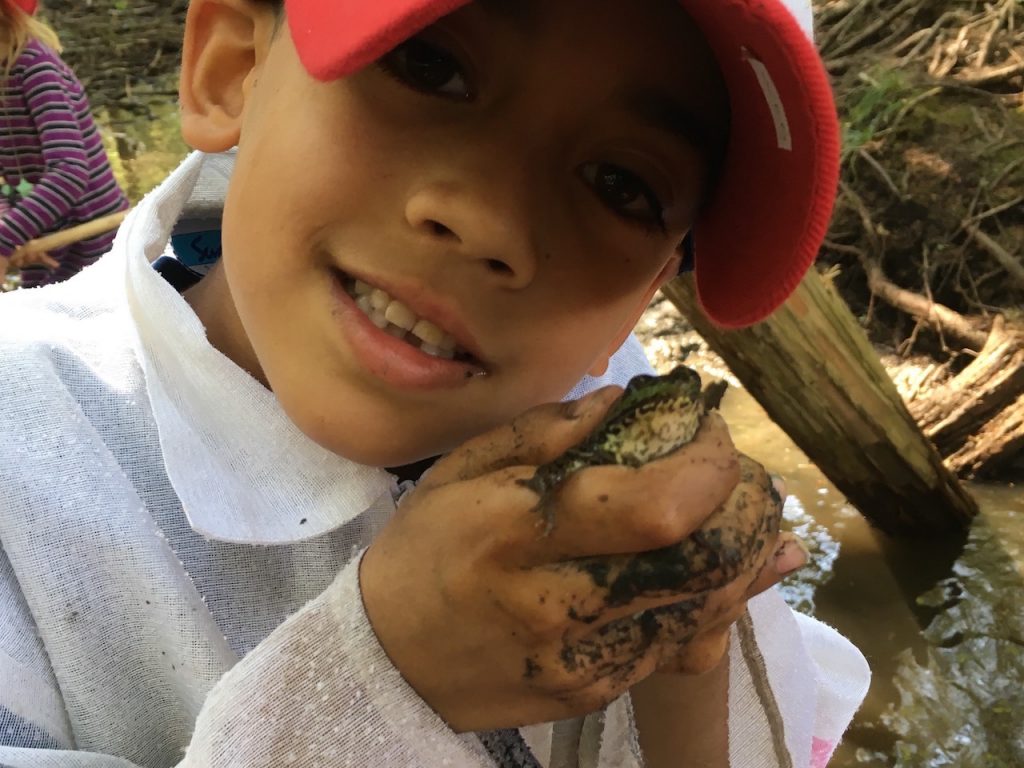
- Lack of indoor facility in case of inclement weather. In some more extreme cases, we have had to cancel programs on a day where thunderstorms or heavy winds/rain are predicted. In light to medium rain, we carry on mostly as planned, venturing into the woods, going on a longer hike to keep warm, or rigging up tarps for snacks and stories, bringing out a thermos of warm tea for a tea party, or collecting as many worms/snails/slugs as we can. Sometimes we bring loose parts, paper, markers, and clay to the picnic shelter. Some children dig in the nearby sandbox, making creeks and dams, while others do artwork under the shelter. Rain always brings surprises and forces us out of our usual habits! In this way, it can be a gift.
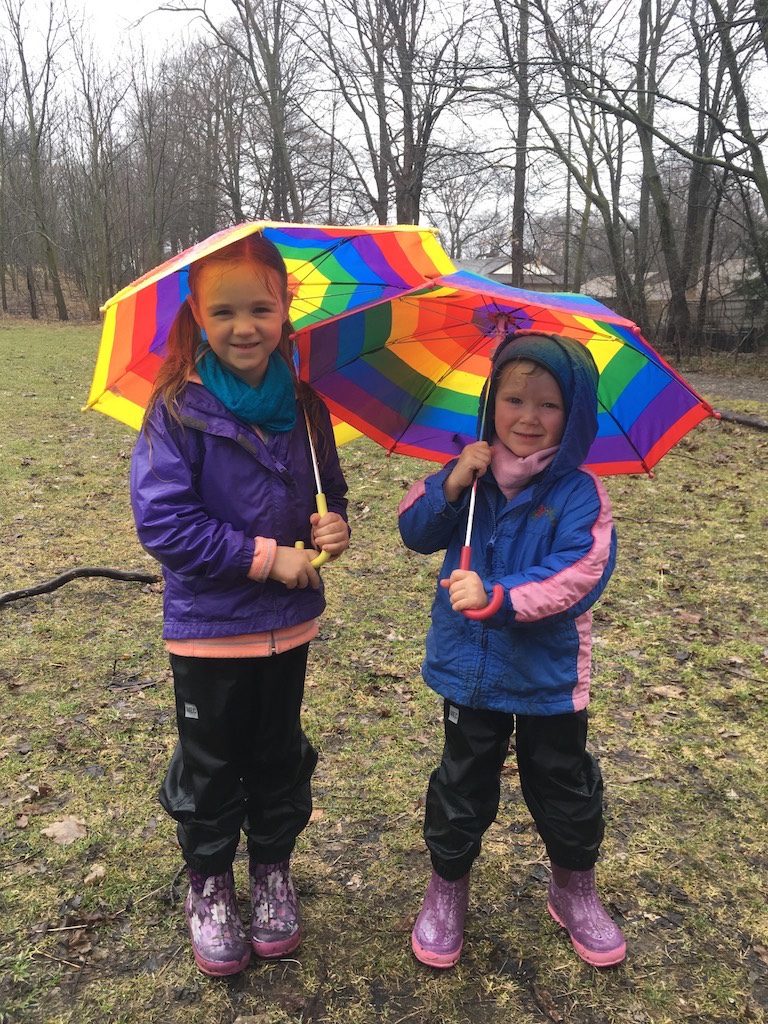
The City’s initial expectation that we stay on the trails. Through careful ecological assessments, we chose two main areas for our groups to use as their “play areas”: Muskrat Bay and Coyote Corners. These places have very little forest floor growth and our activities there seemed to have the least impact on the forest environment. By showing that we will be respectful with the land we visit, the City has been flexible in allowing us to be off trail.
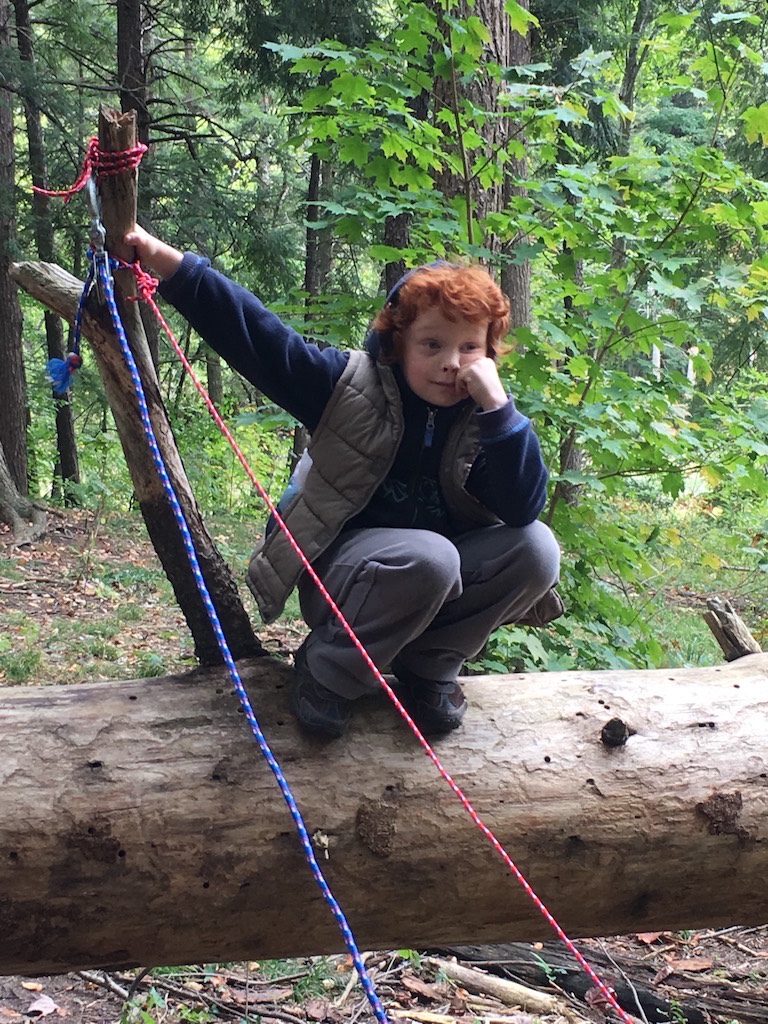
What advice would you pass along to people hoping to start a FNS program?
Be like a young tree: start small like a seed, set down your roots carefully and grow slowly. Be intentional about the people you bring on board and the programs you create.

Josh, what made you say “yes” to Forest School in the City of Kitchener’s parks?
Part of my mandate as Natural Areas Coordinator is to deliver educational, nature-based programming. I had heard of Forest Schools and Forest Kindergartens while pursuing my Masters degree in Environmental Studies. When Rebecca approached me with the Forest School idea, it seemed like a great opportunity to do more of this type of programming with a unique learning philosophy and pedagogy.
I had limited staff (myself) to do educational programs, so I saw it as an opportunity to bring someone else on board to deliver these programs.
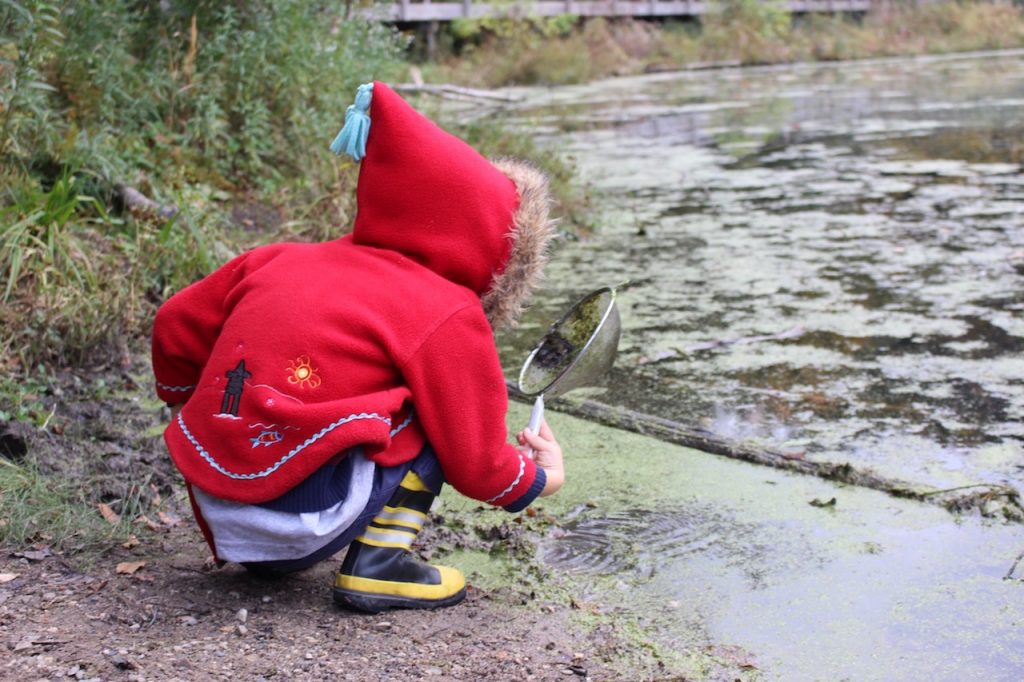
What has been most challenging about launching the Forest School program from the City’s perspective?
- Risky play. We operate in a risk averse environment, so a challenge has been to promote responsible risk-taking in a safe environment.
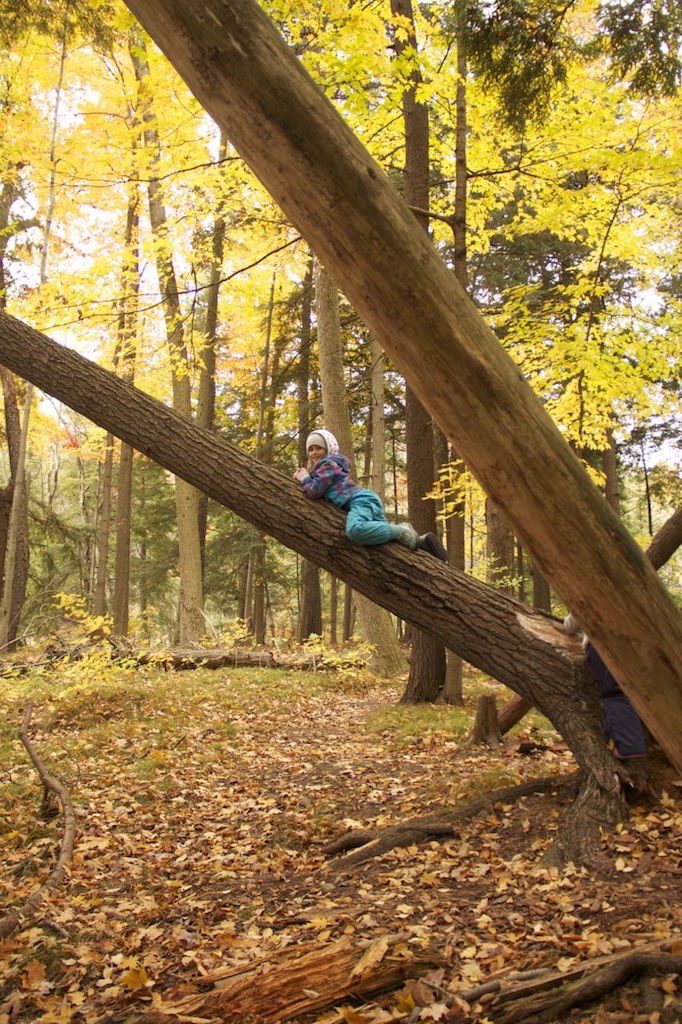
Explaining forest school to others. At times, I need to explain the forest school philosophy and practice to others in the office. They wonder: what is it? Why is it important for the City to promote?
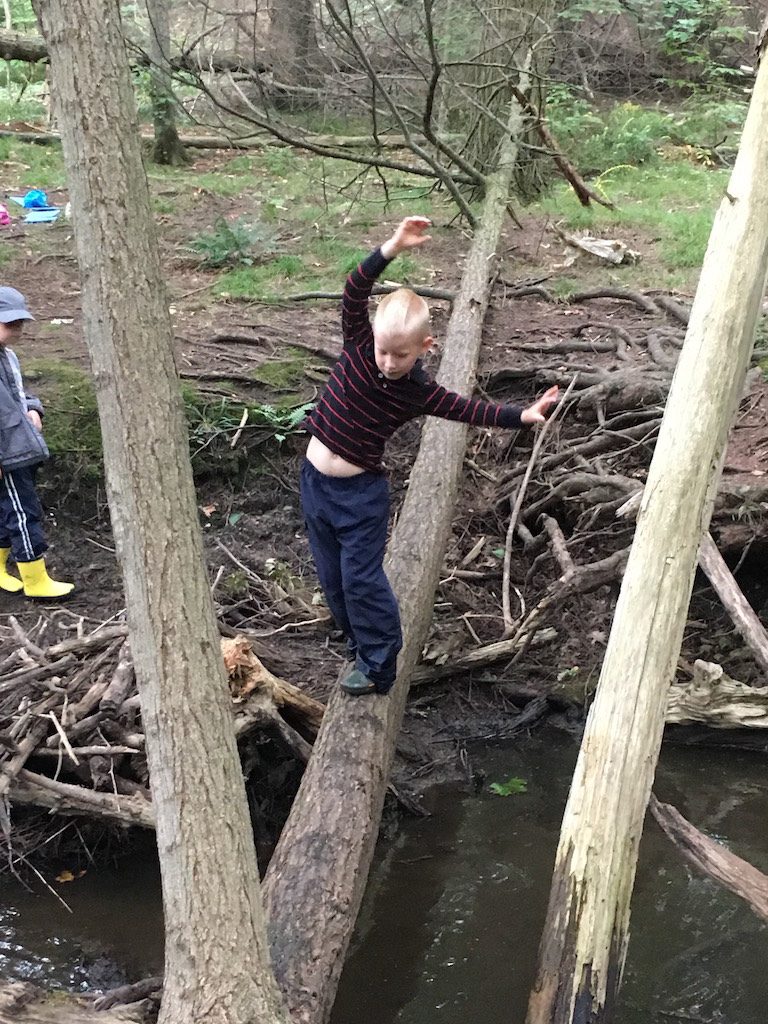
Planning and budgeting far in advance. Some of our year round facility management doesn’t coincide with our year round forest school programs. We need to plan ahead in order to make changes to our budget lines (ie. keeping park bathrooms open in the winter months when they are usually closed).
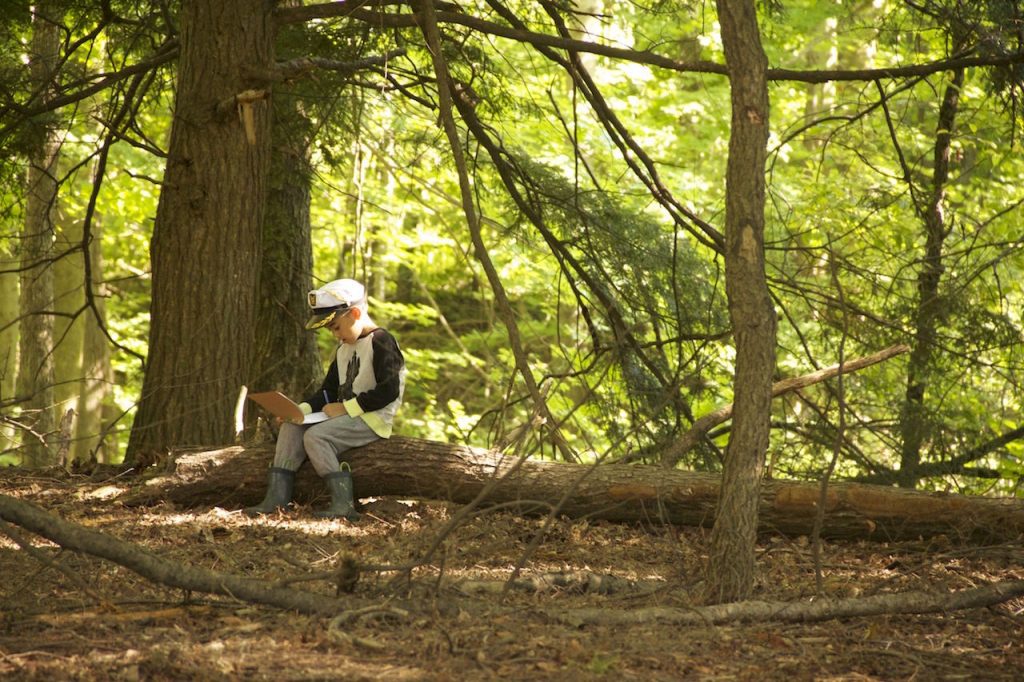
What advice would you pass along to people who might be hoping to partner with a City to run FNS programs?
- Be flexible and be patient! Changes at the municipal level often take time. Be open minded to see what is possible within existing frameworks.
- Connect with the right person. For some cities, this would be someone who works in the Parks and Recreation department, or the Community Services department, or the Operations – Parks department.
- Be clear about what Forest School is, and what it could potentially offer to the City’s residents (families and children).
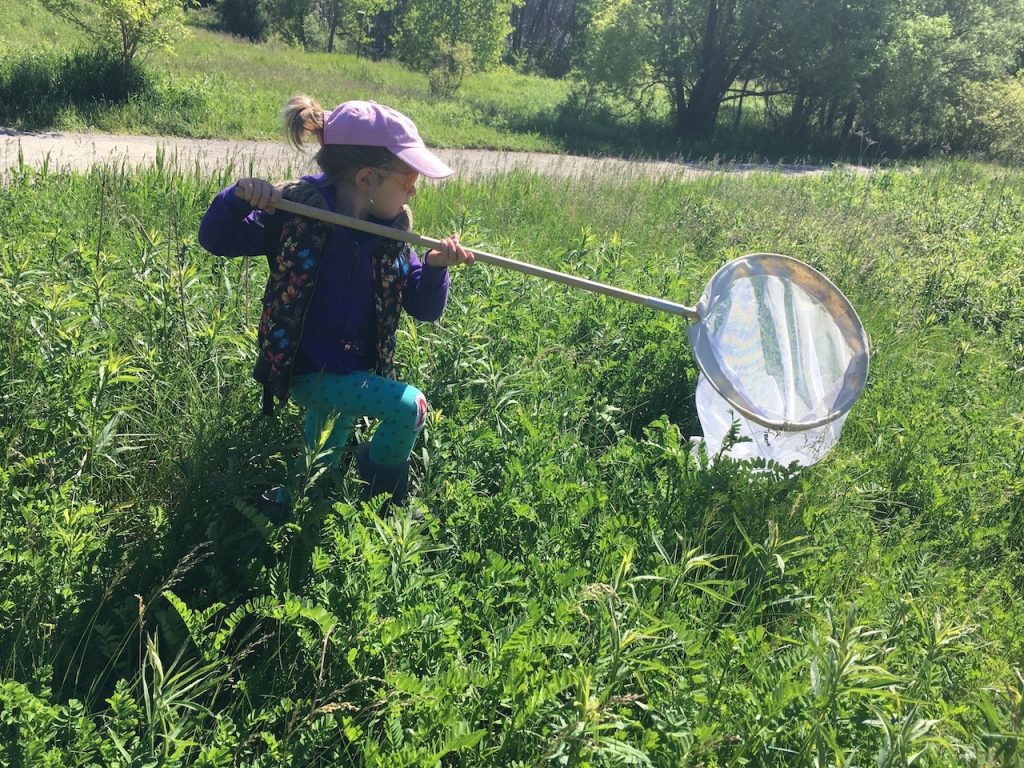
Josh and Rebecca, what dreams do you both have for the future of Forest School programming in the City of Kitchener?
- It would be great if it were integrated into the everyday city programs. Presently, we consult and contract year by year. In the future it would be wonderful if it were a regular component of the city programs, which would include full-time staffing and funding.
- We dream of reaching a diverse population. Presently, our registered Forest School programs are somewhat “preaching to the choir” – reaching families and children who already prioritize time in nature. We wish to provide programs to new Canadians and others who could benefit from concentrated time spent getting to know the land around us. Our Kindergarten programs are starting to do this, but we would like to grow in this area.
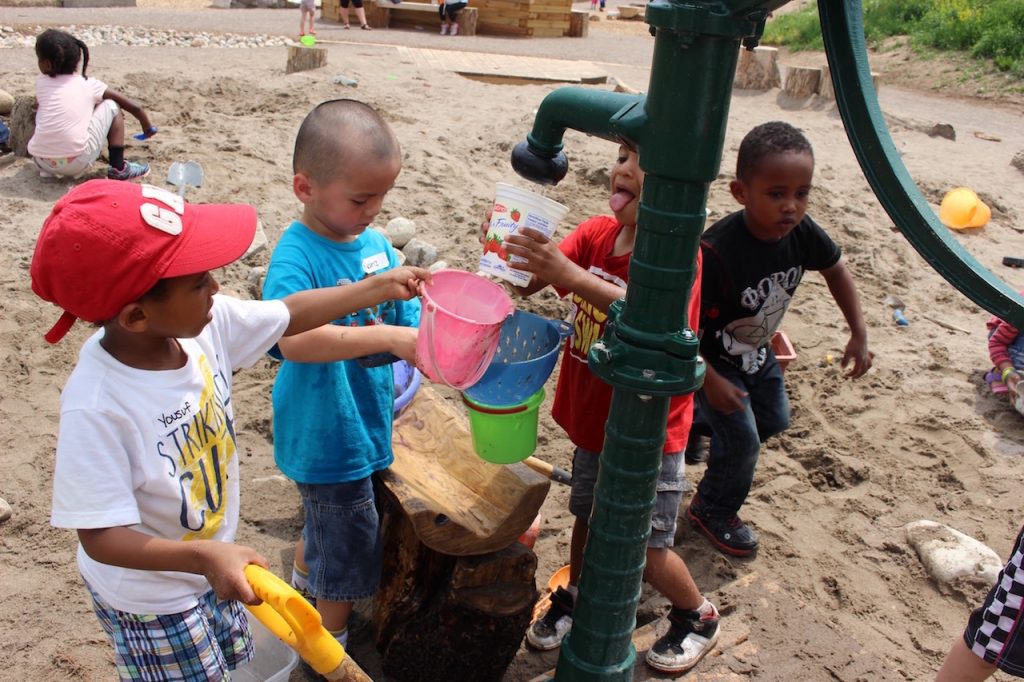
Why is it important to advance the Forest School movement in an urban setting?
- Now, more than ever, it should be a priority to get children into natural settings on a regular basis. Many children don’t have access to a natural area near their homes. Some parents don’t feel that they have the expertise or the time to take their children into these settings. Forest School programs through our public and Catholic boards can provide a place, time and mentors to regularly connect with and learn about our natural world.
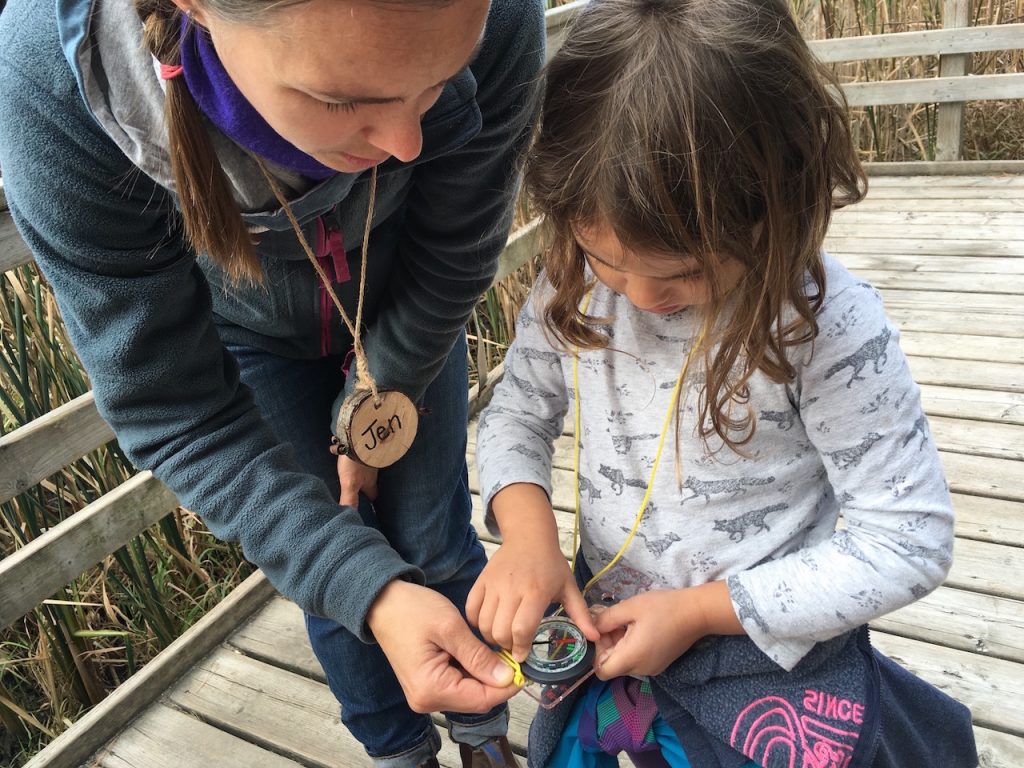
- Time in nature calms us, makes us more curious, encourages creativity, and connects us. It connects us to the land, to each other, and to ourselves. What could be better than that?
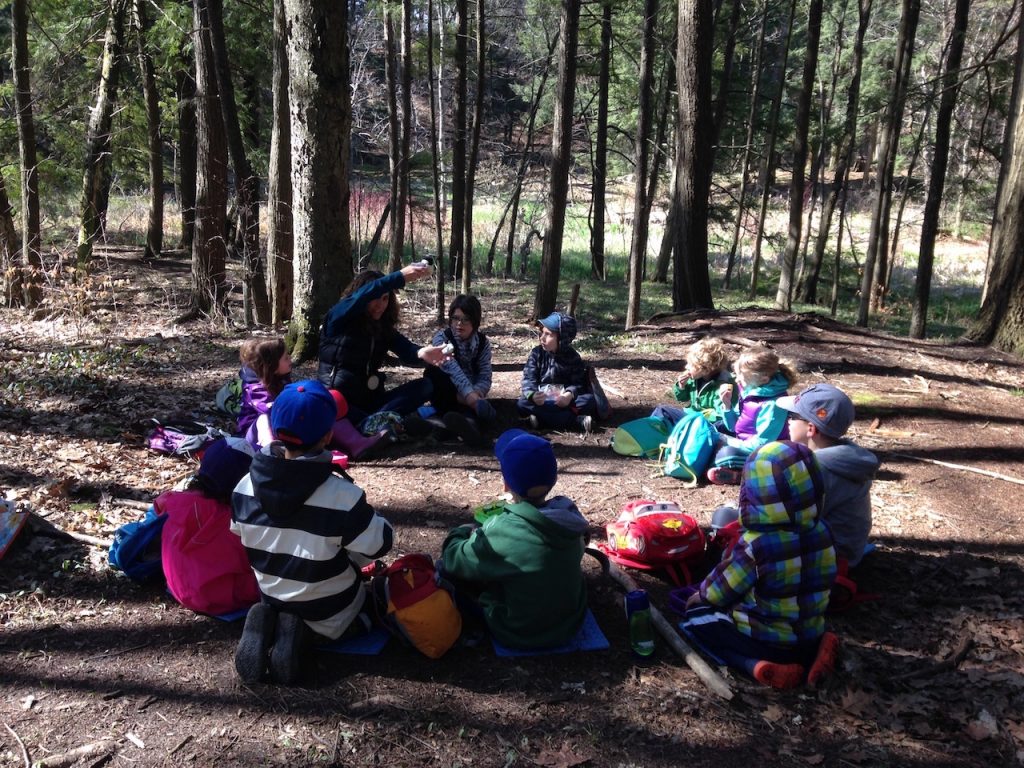

[…] to the second instalment of our series profiling Forest and Nature School programs in Canada! (Click here for the first profile!) As part of our attempt to help answer the question, “How can I start a Forest and Nature […]